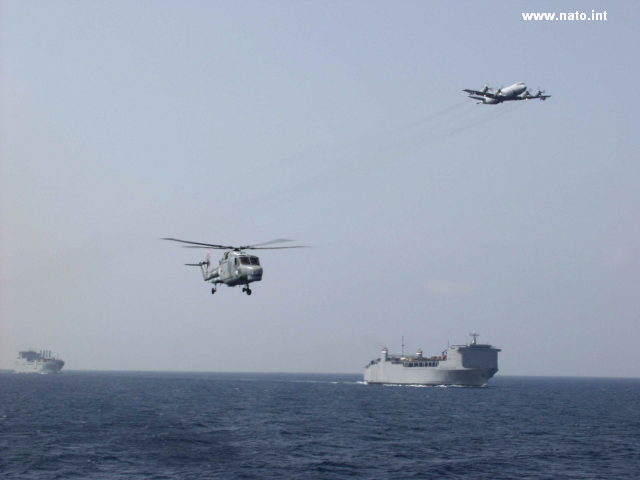Security challenges in the Black Sea area
At the NATO summit in Warsaw, Romania will plead for more attention to be paid to the Black Sea area, considered crucial for regional and Euro-Atlantic security

Corina Cristea, 03.06.2016, 14:29
Montenegro’s confirmation as a future NATO member in early July could create the premises of restoring stability in the Balkans, a security conference held by NATO officials in Bucharest confirmed. Right now, NATO is facing some of the most complex challenges and risks since the conclusion of the Cold War, and, for the first time in its history, the organization is in a period in which it faces challenges on two major directions. Deputy NATO Secretary General Sorin Ducaru said that the main threat comes from Russia, which continues to violate international law on certain points. This is enhanced by instability in the Middle East and North Africa, which are both very close to NATO’s borders. Another threat is the so-called Islamic State, which started to recruit more and more in the region, to create terror cells, and gain weapons to use in attacks in Europe.
According to Sorin Ducaru, the combination between weak or weakened states, regional tensions, radical policies and religion, terrorism, and last but not least, the huge wave of refugees, calls for a complex approach. More to the point, an understanding has to be reached as to how these things interact. The alliance has earmarked 5.5 million Euros over the next four years in the Balkan area to create a buffer zone on its borders, hoping to keep at bay threats from its southern and eastern flanks. Serbia, Macedonia, Bosnia and Herzegovina are already involved in projects to provide emergency assistance to civilians, and, if need be, neutralize chemical and nuclear weapons, combating cyber crime or military action.
NATO will have more troops in Poland after the summit in July, as announced recently in Warsaw by NATO Secretary General Jens Stoltenberg. The summit comes at a crucial moment, when the security threats from the east and south are the most serious in the last few decades, the NATO official said. According to him, the Warsaw summit will be a reference point at which the member states will decide to boost the Alliance’s deterrence ability. He said that the members agreed to improve their presence on the eastern flank, by rotation. Jens Stoltenberg underlined that military planners have already made clear proposals, but they are still under discussion, regarding the precise numbers and places for deployment.
Decisions would be made by the time of the July summit. Another decision to be made at the summit in Warsaw will be to increase efforts to project stability beyond NATOs borders. That will suppose support for partners such as Ukraine, Moldova, and Georgia in the east, and for Iraq, Jordan and Tunisia on NATO’s southern border. As for the anti-missile shield elements in Deveselu, in Romania, of which Vladimir Putin said that it could cause Russian missiles to be aimed at the country, Stoltenberg reaffirmed its defensive nature, emphasizing the fact that it was not aimed at Russia, but at threats outside the Euro-Atlantic area. Any action on the part of Russia would be baseless, since the shield is not aimed at that country. He explained that the interceptors that are already placed in Romania and the ones that will be placed in Poland have no offensive capacity, and that they only have the ability to intercept possible missile threats from outside the Euro-Atlantic space.
In Bucharest, at the security conference, former foreign minister Sergiu Celac commented on the recent threats from Russia: “Several statements have been made that have to be looked at calmly. In fact they are not aimed at us, but at the fact that on Romanian territory we have installations that belong to the entire North Atlantic alliance.
At the NATO summit in Warsaw, Romania will plead for more attention to be paid to the Black Sea area, considered crucial for regional and Euro-Atlantic security.






























